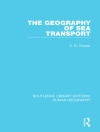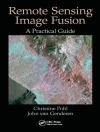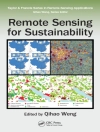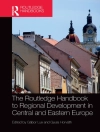The Improvised State provides a highly developed account of the nature and outcomes of Bosnian state practices since the Dayton Peace Agreement. Jeffrey presents new and significant theories, based on extensive fieldwork in Bosnia, which advance understanding of state building.
* Provides a major contribution to recent academic debates as to the nature of the state after violent conflict, and offers invaluable insights into state building
* Introduces the idea of state improvisation, where improvisation refers to a process of both performance and resourcefulness
* Uses the theoretical framework of Pierre Bourdieu to explore how powerful agencies have attempted to present a coherent vision of Bosnia and Herzegovina following the conflict 1992-5
* Advances our understanding of the Bosnian state by focusing on the practices of statecraft fostered in the post-Dayton era
* Research based on four periods of residential fieldwork in Bosnia, which allowed a detailed analysis of political practices in the country
สารบัญ
List of Figures ix
Series Editors’ Preface x
Acknowledgements xi
Abbreviations xiii
1 Introduction 1
1.1 States, Performance and Improvisation 4
1.2 Towards a Political Anthropology of the Bosnian State 7
1.3 Critical Geopolitics and Qualitative Research Strategy
13
1.4 Structure of the Book 16
2 The Improvised State 20
2.1 The State Idea 22
2.2 Performance and Performativity 26
2.3 Improvisation: Performed Resourcefulness 32
2.4 Improvising the State 38
3 Producing Bosnia and Herzegovina 41
3.1 Fault Line 44
3.2 Barrier 50
3.3 The Balkan Vortex 62
3.4 The General Framework Agreement for Peace 67
3.5 Conclusion 70
4 Performing Brèko District 72
4.1 Brèko District and Arbitration 75
4.2 Stability: Getting the Job Done 85
4.3 Security: Constructing Legality 91
4.4 Neutralization: Making People Think 97
4.5 Conclusion 102
5 Gentrifying Civil Society 107
5.1 Building Civil Society 111
5.2 Social Capital: The Autonomy of Civil Society 115
5.3 Cultural Capital: ‘Don ‘ t Just Ask for Another
Copy Machine!’ 118
5.4 Beyond Gentrified Civil Society: Roma and Mjesne Zajednice
123
5.5 Conclusion 129
6 Enacting Justice 132
6.1 Spaces of Justice 134
6.2 Contesting the State 139
6.3 Enrolling Civil Society 145
6.4 Conclusion 153
7 Becoming European 156
7.1 Europeanization and the State 158
7.2 Nested Balkanism 162
7.3 Conclusion 166
8 Conclusion 169
References 179
Index 197
เกี่ยวกับผู้แต่ง
Alex Jeffrey is a University Lecturer in Human
Geography at the University of Cambridge. His research has focused
on the governance of post-conflict environments, particularly the
former Yugoslavia, and the role of non-governmental organizations
in fostering democracy. He is co-author, together with Joe Painter,
of Political Geography: An Introduction to Space and
Power (2009) and with Anoop Nayak on Geographical
Thought: An Introduction to Ideas in Human
Geography (2011).












